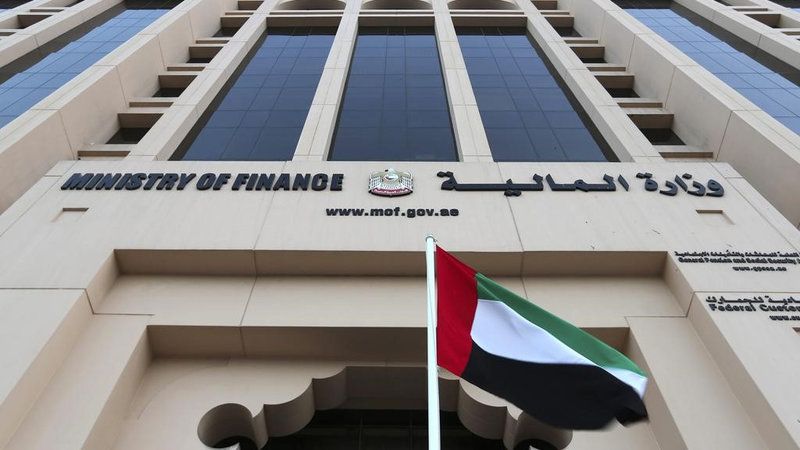4 Major UAE Business Law Changes You Cannot Ignore in 2025-2026
4 Major UAE Business Law Changes You Cannot Ignore in 2025-2026
Your competitor down the street just received a AED 10,000 penalty for missing a compliance deadline. Another business owner you know is scrambling to find accredited service providers before July 2026. Meanwhile, savvy entrepreneurs are already positioning themselves ahead of UAE business law changes that most companies haven't even begun preparing for.
The difference between businesses that thrive through regulatory change and those that struggle often comes down to timing. Right now, you have a window to prepare for four major UAE business law updates reshaping the commercial landscape. Miss this window, and you're looking at rushed implementations, penalty risks, and missed opportunities.
1. Mandatory E-Invoicing Launches July 2027
Here's what catches most business owners off guard: e-invoicing in the UAE isn't about converting your current invoices to digital format. The Federal Tax Authority requires a completely new system based on the Peppol network with real-time reporting.
Your new reality starting July 2026:
Every B2B and B2G invoice must be in XML or JSON format
You need an Accredited Service Provider to validate and transmit your invoices
The system operates on a 5-corner model connecting you, your customer, service providers, and the FTA
Paper invoices and PDFs become non-compliant
The Ministry of Finance structured this as a phased rollout. Larger enterprises go first in July 2026, with SMEs following later. But here's the catch: if you wait until your phase begins, you'll be competing for the same limited pool of accredited providers and implementation resources.

Smart businesses are acting now. They're conducting gap analyses, selecting service providers, and running test implementations. When July 2026 arrives, they'll be operational while competitors are still figuring out basic requirements.
The upside? Companies implementing e-invoicing report up to 66% reduction in processing costs, faster VAT reconciliation, and dramatically improved audit readiness. Your investment in this system pays dividends beyond mere compliance.
2. Climate Law Brings Mandatory ESG Reporting
Federal Decree-Law No. 11 of 2024 took effect May 30, 2025, marking a significant shift in UAE business law. This isn't about voluntary sustainability initiatives you can highlight in marketing materials. It's legally binding climate action with penalties reaching AED 2,000,000.
The law applies to you if your business operations release greenhouse gases. That includes mainland companies, free zone entities, and operations across all sectors. The Ministry of Climate Change and Environment isn't making exceptions.
What you must do:
Measure your greenhouse gas emissions using approved methodologies
Report emissions data regularly to authorities
Maintain five years of emissions records
Implement reduction strategies aligned with UAE climate neutrality targets
Develop sector-specific adaptation plans for climate risks
Non-compliance carries fines from AED 50,000 to AED 2,000,000. Repeat violations within two years? Penalties double. Severe cases can result in operational restrictions or license suspensions.
Most businesses need to begin compliance activities by late 2025, with full reporting requirements extending through 2026. Sector-specific timelines are being released by the Ministry, so your exact deadline depends on your industry.
Here's what many miss: this creates market opportunities. Companies with strong climate performance gain advantages in government procurement, attract ESG-focused investors, and win partnerships with international firms prioritizing environmental credentials.
3. 15% Minimum Corporate Tax for Multinational Enterprises
The Domestic Minimum Top-Up Tax (DMTT) became effective January 1, 2025, representing another major UAE business law update targeting large multinational enterprise groups. If your consolidated global revenues exceed EUR 750 million in at least two of the past four years, this changes your tax position.
The DMTT ensures you pay a minimum 15% effective tax rate on UAE profits. Even if you benefit from free zone incentives, tax holidays, or other deductions that bring your rate below 15%, the DMTT applies as a top-up.
How this impacts your operations:
Calculate your effective UAE tax rate across all entities
Identify gaps where your rate falls below the 15% threshold
Pay top-up tax to reach the minimum rate
Maintain comprehensive transfer pricing documentation
Prepare financial statements under IFRS standards
Local companies and SMEs below the revenue threshold aren't affected. The existing 9% corporate tax on profits above AED 375,000 continues as normal for businesses outside the DMTT scope.
The complexity comes from how this interacts with existing structures. Many MNEs established free zone entities specifically for tax benefits. Now you need to assess whether your global group's effective rate triggers DMTT obligations even while maintaining free zone status.
Your compliance extends beyond calculations. You need detailed documentation showing how you determined your effective rate, transfer pricing policies for related-party transactions, and systems to monitor ongoing obligations as your business evolves.
4. Expanded Golden Visa Categories Open New Pathways
The UAE Golden Visa program added five major professional categories in 2025, making long-term residency accessible to significantly more people. This matters for your business because Golden Visa status for you and key team members demonstrates stability and long-term commitment.
|
Professional Category |
Eligibility Requirements |
|
Digital Content Creators & Media Professionals |
Proof of consistent work, recognition from Creators HQ |
|
Professional Gamers & E-sports Experts |
25+ years old, accreditation from Dubai Culture or Abu Dhabi DCT |
|
Healthcare Workers |
Nurses with 15+ years continuous service in UAE facilities |
|
Teachers & Academics |
Working in Dubai or Ras Al Khaimah with KHDA or RAK DOK endorsements |
|
Luxury Yacht Owners & Maritime Executives |
Proof of yacht ownership (40m+) or professional role in maritime services |
Investment requirements have been refined too. Real estate investors can qualify through off-plan properties with 50% down payments. Entrepreneurs need just AED 500,000 minimum project value when backed by approved incubators.
Core Golden Visa pathways:
- AED 2 million investment in approved funds, real estate, or business ventures
- AED 500,000 entrepreneur projects with incubator endorsement
- Specialized professional roles with valid employment contracts
- Outstanding students and graduates with high academic achievement
The visa provides 10-year renewable residency without employer sponsorship. You can include your family members and maintain residency even when traveling extensively outside the UAE.
From a business perspective, Golden Visa status strengthens your banking relationships, demonstrates commitment to UAE operations, and provides stability that supports long-term planning and investment decisions.
How GulfBridge Supports Your Compliance Journey
These four UAE business law changes arrive simultaneously between now and mid-2026. Your business needs to address e-invoicing system requirements, implement climate measurement frameworks, assess tax obligations under new rules, and potentially pursue Golden Visa status for key personnel.
At GulfBridge, we provide integrated solutions that address these UAE business law requirements efficiently:
Our Services:
- Climate compliance frameworks including emissions measurement and reporting
- Corporate tax planning with DMTT obligation assessment
- Golden Visa application support for business owners and key personnel
- Integrated compliance solutions that work together rather than creating separate administrative burdens
We understand that these changes can feel overwhelming when viewed in isolation. Our approach connects your compliance activities so your e-invoicing data feeds into tax reporting, your emissions measurements inform ESG positioning, and your entire compliance infrastructure supports rather than hinders business growth.
The Window Is Closing
The next 18 months will separate prepared businesses from those caught off guard. Your competitors are making choices right now about when to act. Some will wait, hoping for deadline extensions or simplified requirements that won't come.
Others are already implementing systems, training teams, and positioning themselves to benefit from these UAE business law changes rather than just survive them. Which group will your business join?

Popular Articles

Doing business in Abu Dhabi Free zones: benefits, risks, pitfalls












